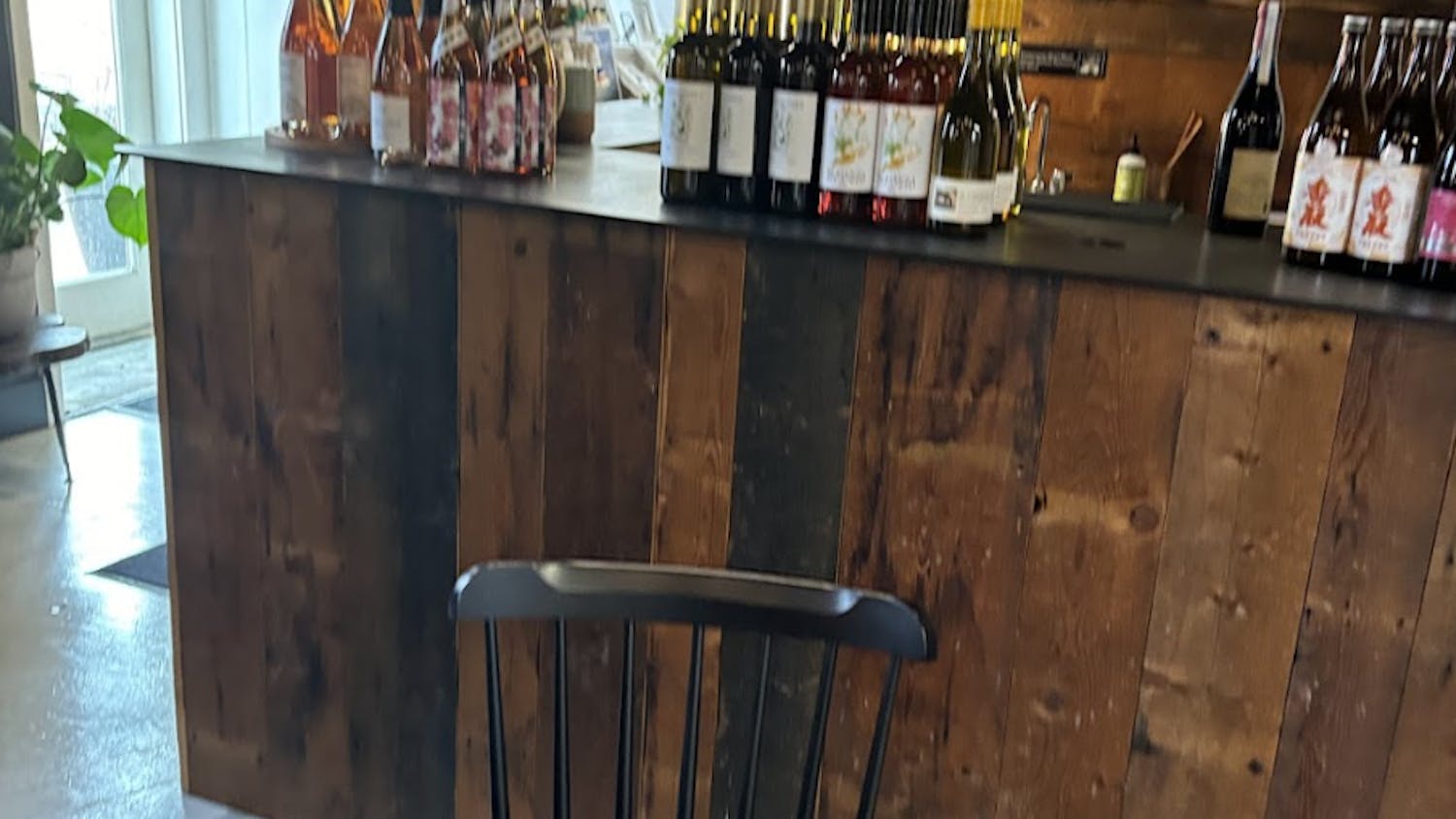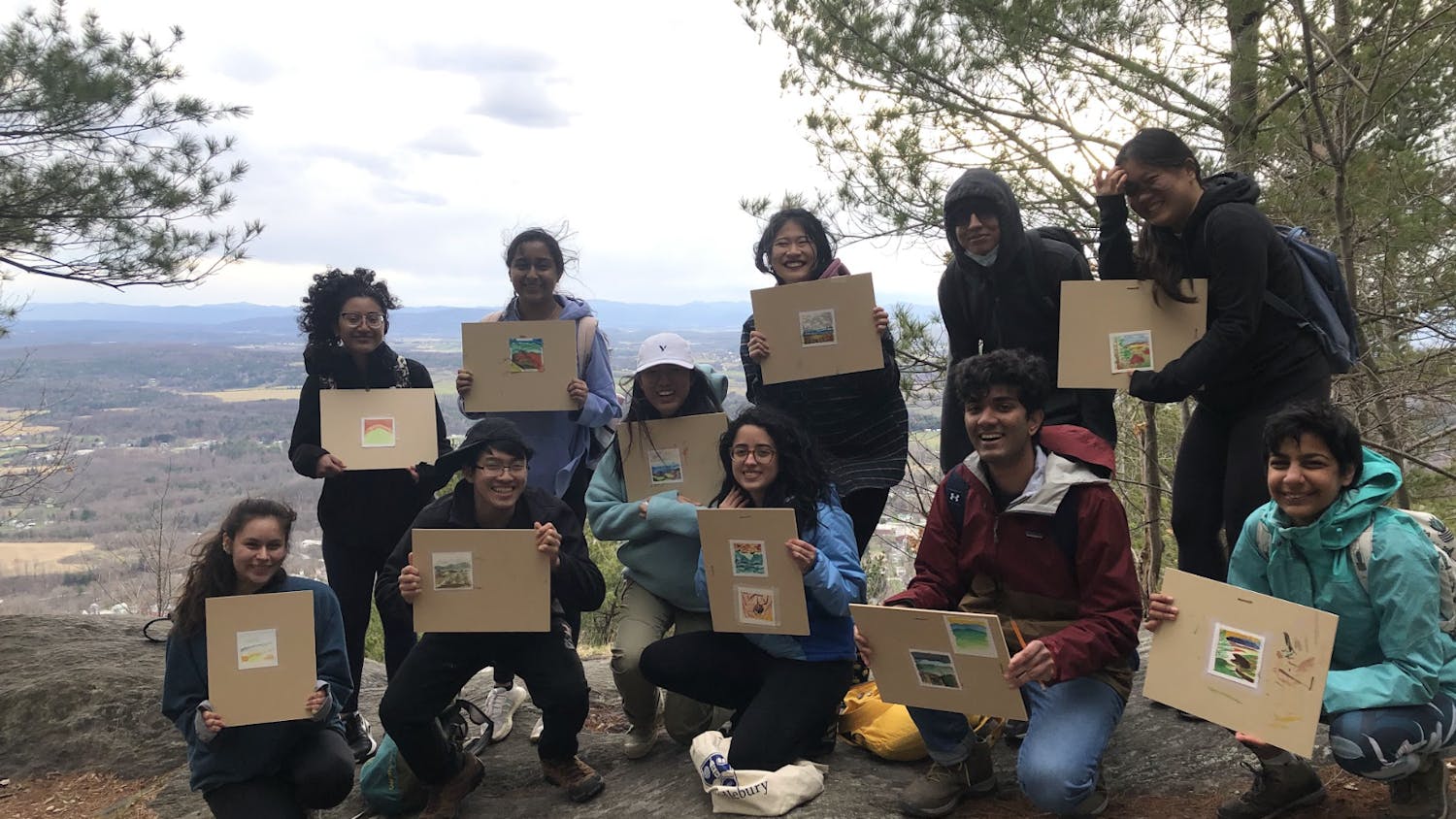On Nov. 17 hundreds of Mexican migrant farmers congregated at the Unitarian Universalist Church in Middlebury; some waited for passport photos to be printed, some received flu shots from the Open Door Clinic, some read flyers distributed by WomenSafe, some chatted with friends but most sat patiently waiting for their new passports. While many individuals attended the annual event, which is hosted by the Vermont Migrant Farmworkers Coalition, to receive health screenings and gather winter clothes, the event had a second purpose as well — the Mexican Consulate was visiting to issue passports and matriculate identification cards to the workers.
The Mexican Consulate visits Vermont once or twice a year — usually in Middlebury, although recently in Plainfield as well — to offer Mexican farm workers the opportunity to receive documents from their home country. The consulate visits these areas due to their higher concentrations of migrant workers, though Mexican farmworkers are located throughout the state and in parts of upstate New York and New Hampshire. Therefore some workers travel great distances to attend this one-day event, relying on employers, but mainly volunteers for transportation since most migrant workers do not qualify for drivers’ licenses.
Immigrant labor in Vermont is not a new development. For over a decade, Jamaican workers have provided the bulk of labor for apple harvest in the fall months and Mexican workers have been a stable part of Vermont’s dairy industry, tending day and night to the milk production cycle. What separates Mexican laborers from other immigrant laborers, however, is their status; seasonal workers, such as those from Jamaica, can receive H-2A visas, which permit workers to legally fill temporary agricultural jobs, assuming that they will not adversely affect employment opportunities for domestic laborers. The nature of dairy farming denies laborers the opportunity for such visas, as dairy farming is a year-round operation and demands full-time employment.
Herein lies the problem for many Mexican migrant farm workers. Since they are unable to secure work visas, some illegally travel thousands of miles, from Mexico to Vermont, to find work on dairy farms. Faced by the constant threat of deportation, the demanding nature of dairy farming and the reality of no legal rights, Mexican workers are forced to remain hidden, trapped on the farms where they work.
Many activist groups, such as the Vermont Migrant Farmworkers Coalition, have been formed to help these undocumented workers find resources and feel a part of a community. This coalition has existed over a decade and is made up of committed volunteers — students, doctors, social workers and others — who work together to serve the needs of migrant farmers and promote awareness of issues they face in Vermont.
According to Cheryl Mitchell, co-head of the Vermont Migrant Farmworkers Coalition, today’s migrant laborers suffer from a variety of problems, highlighted by immigration and legal issues.
“Obviously the major challenge is immigration status,” Mitchell said. “They cannot get a green card status. We have been talking about [immigrant status] ever since I have been involved, so at least 10 years, and it has never passed. For people not to have legal status while they’re here is very difficult.”
Additional problems have become less urgent in recent years. Mitchell commends the efforts of health and social service providers, who have addressed health needs, distributed clothing and provided transportation for doctors’ visits or trips to the grocery store. A looming concern, however, is the state of the current dairy industry in Vermont.
“The other big issue is the fragility of farming,” Mitchell reflected. “The whole agricultural sector right now is fragile, so if the farms go under then the workers are here with nothing to do. It used to be that if somebody [wanted] to come up and [wanted] a job we could call around and see who [was] hiring. Not so many people are hiring anymore because the farms are going out of business.”
While this issue raises significant concern for migrant and domestic laborers alike, lack of transportation remains a more immediate problem for the well being of undocumented workers in Vermont. Some farmers provide transportation for the laborers, but most receive help from volunteer groups, such as Amistad or Juntos — a Middlebury College student volunteer group. Due to this reliance, farm workers rarely feel self-sufficient and many feel trapped. Migrant Justice, with backing from the Vermont Migrant Farmworkers Coalition and other allies, has assumed an advocacy role for migrant laborers and is lobbying for workers to have the opportunity to obtain driver’s licenses.
Danilo Lopez, a former migrant worker and a leader of Migrant Justice is working hard to get this legislation passed.
“We want the members of our communities to have access to everything — to basic needs, such as being able to get driver’s licenses,” Lopez explained through translator Danny Loehr ’13.5, a student board member of Juntos. “But it is not just about having a license and being able to drive. It is about being independent — being able to do what we need to do when we need to do it and not always being dependent on others.”
Migrant Justice was formed three years ago as a response to the unmet needs of migrant farmers in Vermont, but only gained traction following the tragic death of a young worker on a dairy farm in Fairfield, Vt. on Dec. 22, 2009. Since its creation, Migrant Justice has achieved many of its goals by creating a family-like atmosphere for the migrant community that lends support to workers and informs them of their rights while raising money for the release of detained workers. Over the past year Migrant Justice has worked with the migrant community to develop a list of five initiatives they hope to achieve, and presented the list to Governor Peter Shumlin.
This list includes better access to health resources, a bias-free policing policy, improved labor and living conditions, access to driver’s licenses and immigration reform that removes the federal government’s “Secure Communities” program. In spring 2012 Vermont implemented the federal program “Secure Communities,” which allows state police to contact the Department of Homeland Security with questions regarding immigrant status. According to Lopez, migrant communities call this law “Insecure Communities,” as the program has made immigrants more wary of going to state officials with problems or complaints for fear of being detained or deported. While “Secure Communities” remains in effect, Migrant Justice has been successful in implementing a bias-free policing policy, restricting racial profiling.
Despite the group’s successes, members of Migrant Justice are not satisfied with their progress.
“In the past year I have been really impressed; a lot more people have gotten involved and we have really gotten a lot done,” said David Santiago, a current farm laborer and member of Migrant Justice. “But of course there is always more to do … Our final goal is to be completely independent.”
While members of Migrant Justice and the Vermont Migrant Farmworker Coalition feel optimistic that during the upcoming year Senate Bill 238, which would allow undocumented workers to obtain driver’s licenses, will be passed, many in the state are not so supportive. Critics of the proposed legislation believe that affording Mexican laborers the freedom to drive gives them unfair privileges. Additionally, many do not want to grant illegal workers rights that legal guest workers would not have. These considerations have been taken into account and the bill has been highly revised. As of now, advocates must wait until the beginning of the term, in January 2013, to introduce the bill to lawmakers.
The average migrant farmer stays in Vermont for two to three years, working to save up money to send home to help his family. Since many workers have dreams of starting their own businesses upon their return to Mexico, much of the money they make goes into savings. When they feel they have saved enough money, passports are the key to their successful return home. The annual Mexican Consulate visit, therefore, is vital for many workers who are not in possession of passports or official documents.
Lopez attends each of the Consulate visits, hoping to reach out to more migrant workers and get them involved.
“We want to have a community that can organize and understand [migrant workers’] rights and be able to work more justly in Vermont, “ said Lopez. “We do not want to be [invisible] members of the Vermont agricultural system, but rather recognized hands of the farm-working system.”
Beyond greater access for workers, the goal of Migrant Justice and migrant farm laborers at large is to be recognized.
“The most important thing we want,” Lopez said, “is to show we are humans, not dairy machines.”
This recognition comes with cultural change — one that is vital for the hundreds who help run Vermont’s dairy industry.
Migrant Workers Gather for Passports, Allies Push for Rights
Comments



